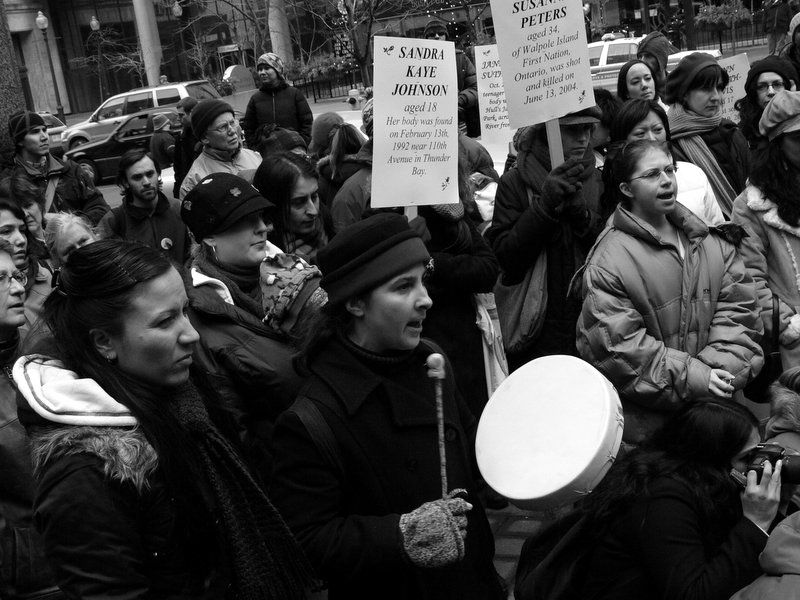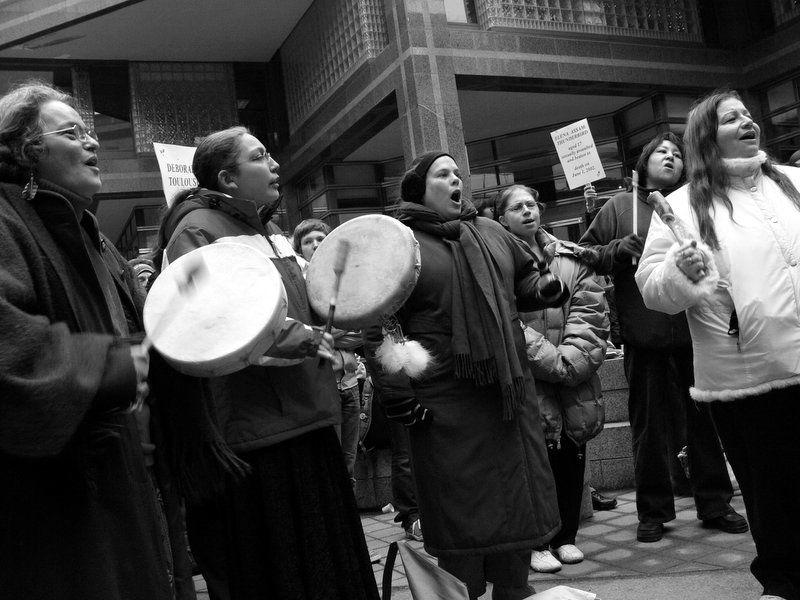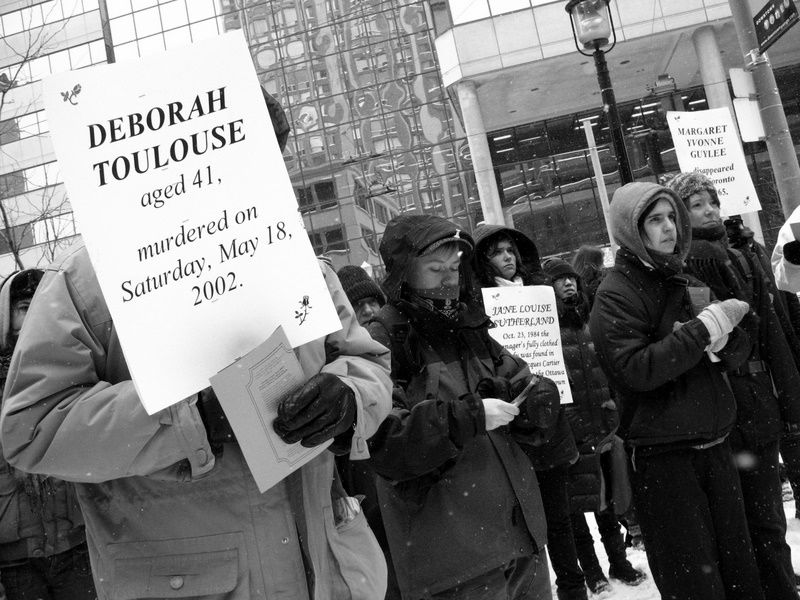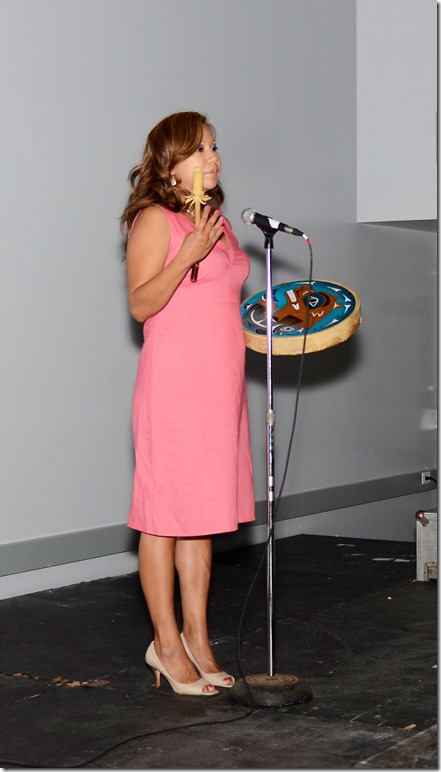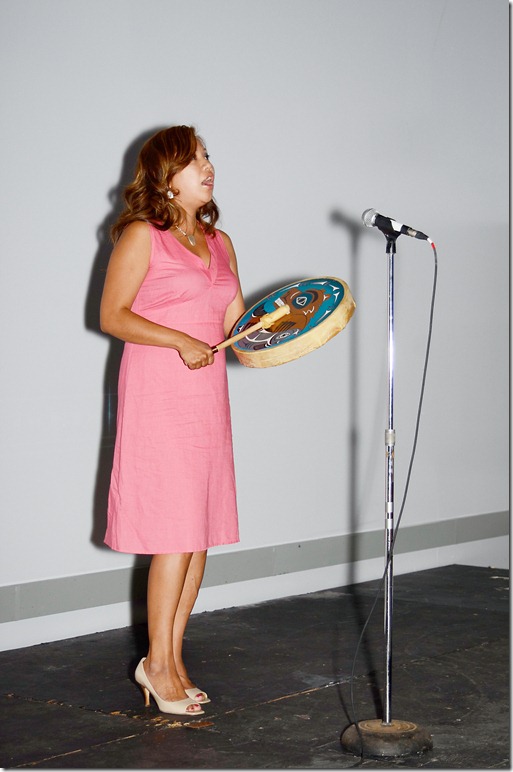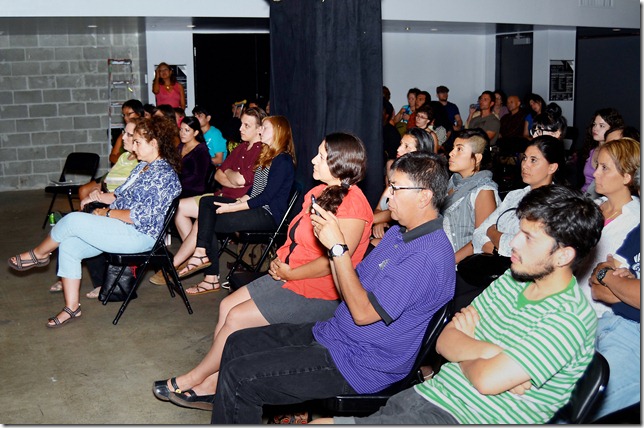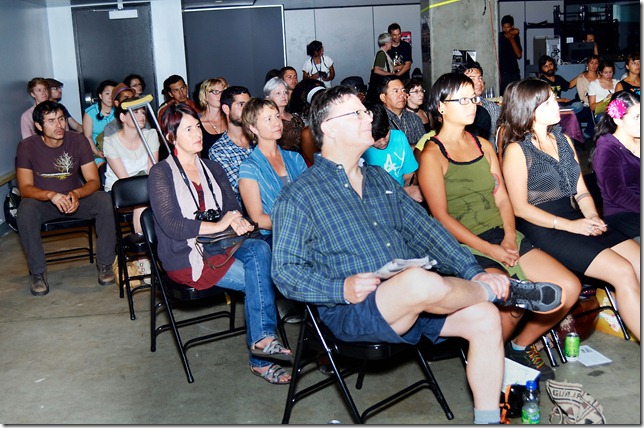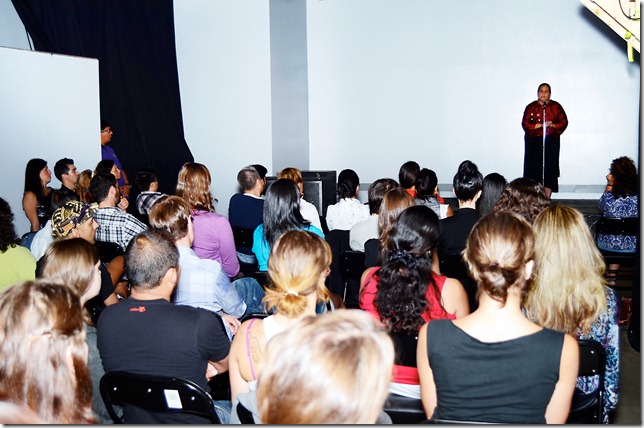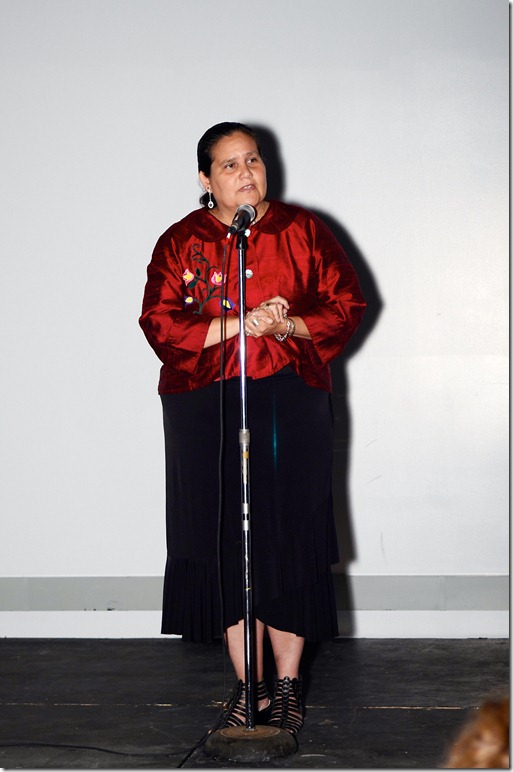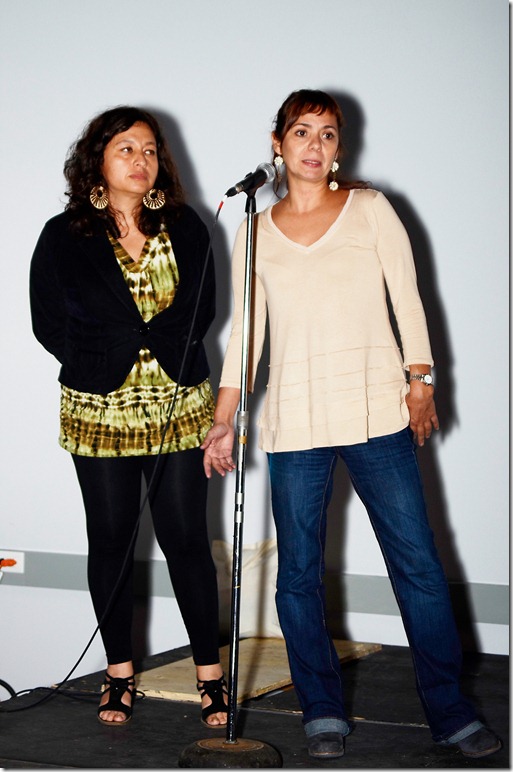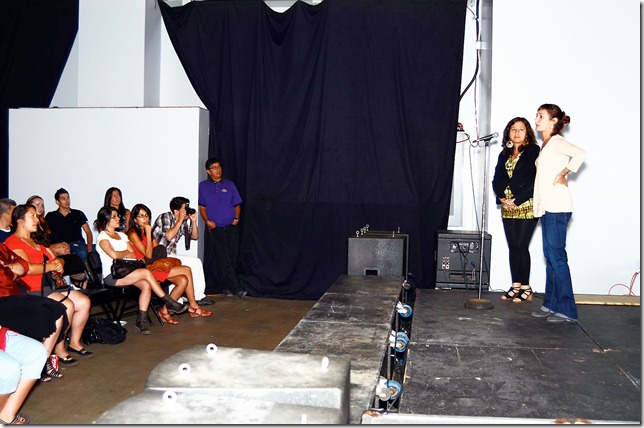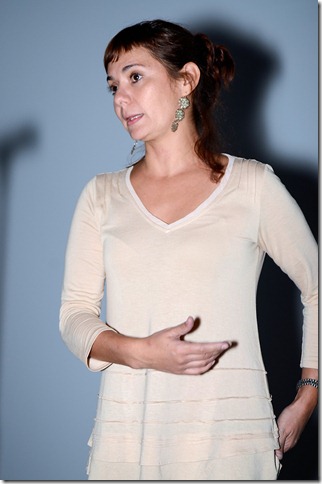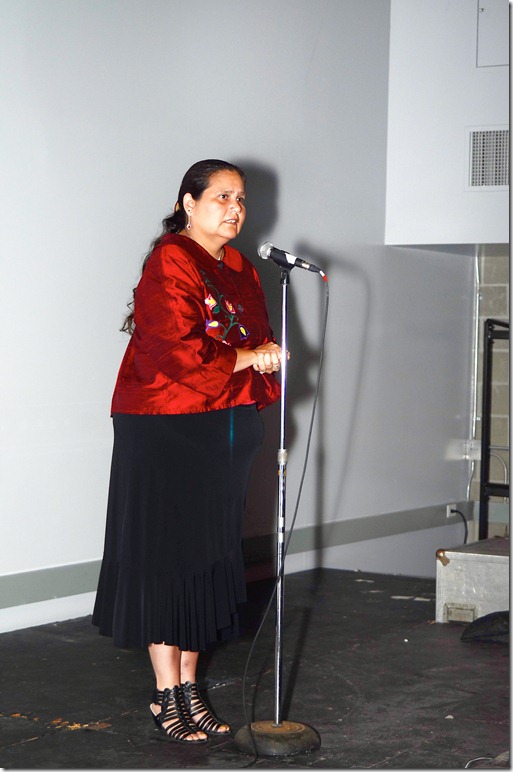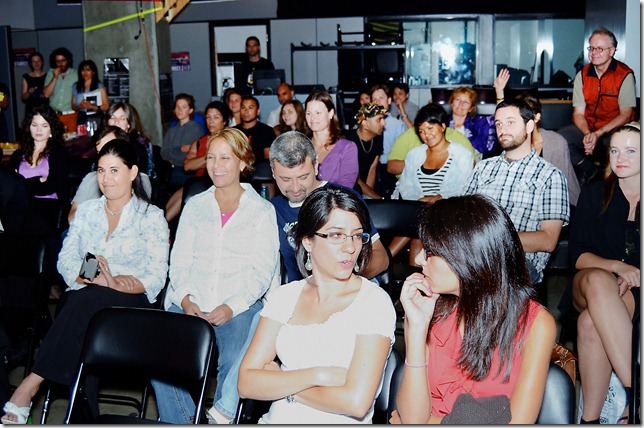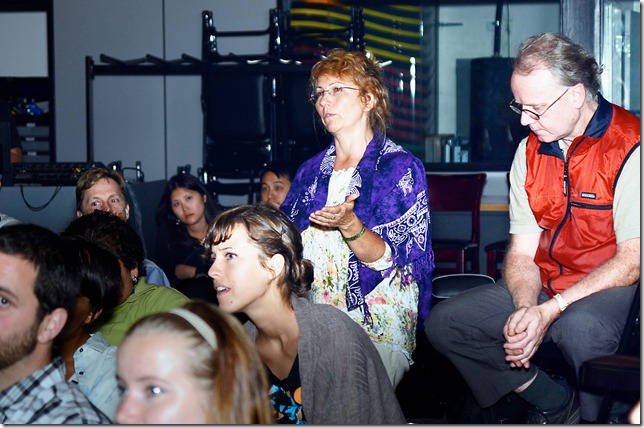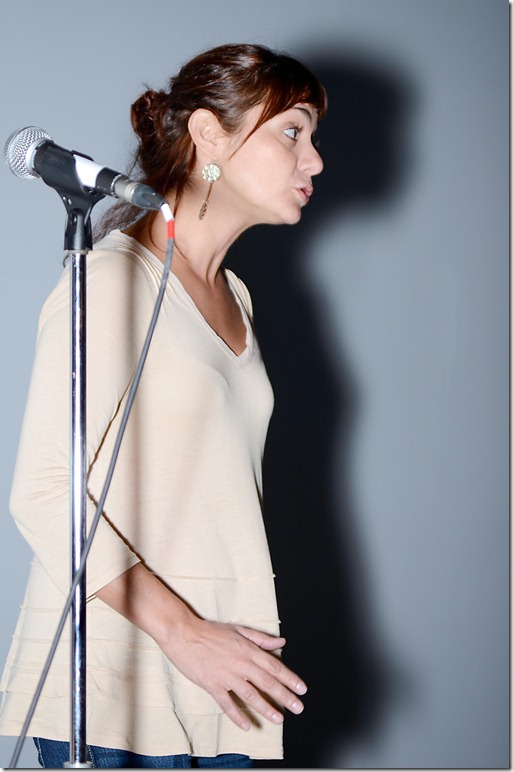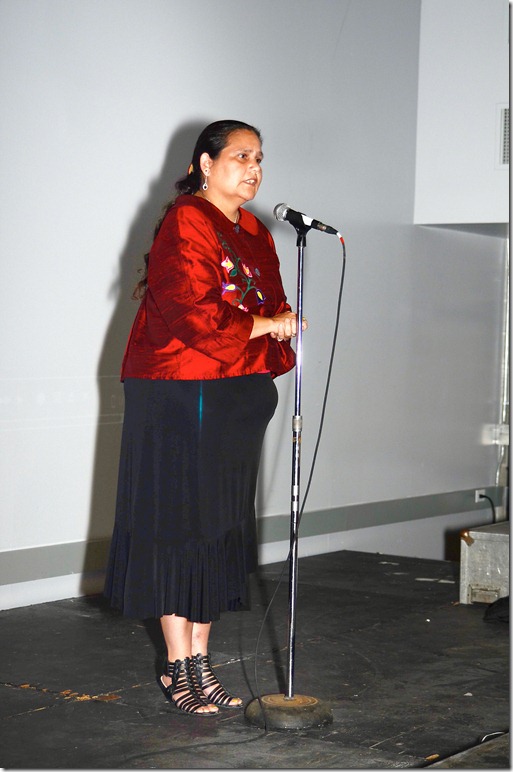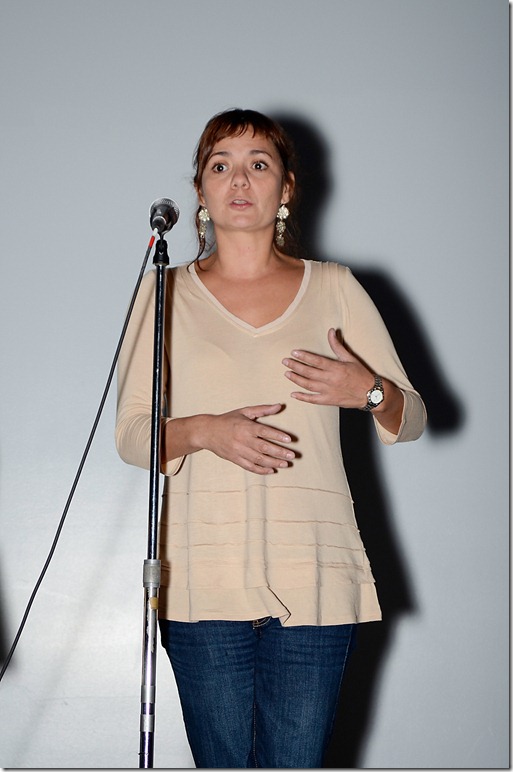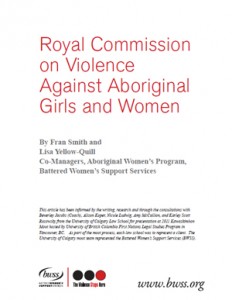February 14th in Toronto – Ceremony as an Act of Sovereignty
February 14th in Toronto – Ceremony as an Act of Sovereignty
by Audrey Huntley
Audrey is of mixed settler (German/Scottish/Irish) and Indigenous (Anishnawbe) ancestry
No More Silence, a group founded in 2004 of allies and Indigenous women that aims to develop an inter/national network to support the work being done by activists, academics, researchers, agencies and communities to stop the murders and disappearances of Indigenous women, held Toronto’s 1st Annual February 14th Memorial for Missing and Murdered women in 2006. The Picton trial had just begun a month earlier and we had an urgent need to express our solidarity with the community of Vancouver’s Downtown Eastside and the family members of the women killed on the farm.
Our first call out stated: “On February 14th we will come together in solidarity with the women who started this vigil 15 years ago in Vancouver’s Downtown Eastside, and with the marches and rallies that will be taking place across this land. We stand in defense of our lives and to demonstrate against the complicity of the state in the ongoing genocide of Indigenous women and the impunity of state institutions and actors (police, RCMP, coroners’ offices, the courts, and an indifferent federal government) that prevents justice for all Indigenous peoples. “
We choose to come together at police headquarters in order to highlight the impunity that Canada affords killers of poor and marginalized women – women not deemed worthy of state protection and Indigenous women targets of the genocidal policies inherent to a settler state. We do not ask for the state’s permission in doing so and instead honour the sovereignty of the Indigenous peoples that have shared the caretaking responsibilities of this land for thousands of years. Family members are given the opportunity to share and Wanda Whitebird (Bear Clan and member of the Mi’kmag Nation) leads the community in a strawberry and water ceremony. No More Silence chooses to practice ceremony in honouring our missing sisters both as an act of love for those who are gone and those who remain behind to mourn as well as an assertion of sovereignty. It is the group’s understanding that settler violence against Indigenous women is inherent to ongoing colonization and land theft. Indigenous women who are at the centre of our communities have always presented an obstacle to the colonial project as evidenced currently in their leadership of Idle No More.
Coming together as allies and Indigenous women No More Silence seeks to practice a decolonizing solidarity that we believe will be fundamental in shifting the power dynamics governing this land. This is why we look to ancient wisdoms such as the teachings of the Three Sisters in shaping how we work together for a better future – one that will honour all our relations and protect our mother – the land.
~ The Three Sisters ~
Once, Native people of this land were starving.
Then Three Sky Sisters came to live with them: Corn, Squash and Bean
Corn stood tall and straight in the fields around the village. Squash laid herself at Corn’s feet and protected her sister by keeping the soil moist. The third Sister, Bean, could make her own nourishment from the soil. But she was so weak and thin she could not support herself. So corn supported Bean as she grew up towards the sun, and soon they were all growing strongly together.
The people learned not only to plant the Three Sisters in the same soil, but also to work together and support each other.
Eight years later in 2013 No More Silence is joined by the Native Youth Sexual Health Network, Sistering and Camp Sis in our organizing. NaMeRes (Native Men’s Residence) staff will provide the food, cook and serve the feast following the ceremony.
Numerous Toronto organizations and agencies have endorsed the event including: Native Women’s Resource Centre, Anduhyaun Native Women’s Shelter, Aboriginal Student Association at York (ASAY), Ontario Aboriginal HIV Strategy, Ontario Federation of Labour, International Women’s Day Toronto Committee, Muskrat Magazine, Toronto Rape Crisis Centre/Multicultural Women Against Rape (TTRC/MWAR), Gathering Weavers, Christian Peacemaker Teams- Aboriginal Justice Team, Canadian Chiapanecas Justice for Women, Maggie’s Toronto Sex Workers Action Project, Ontario Coalition Against Poverty (OCAP), Metro Action Committee Against Violence Against Women and Children (METRAC), Indigenous Sovereignty and Solidarity Network, The Redwood Shelter, CUPE local 1281, Women and Gender Studies Institute at U of T (WGSI), International Jewish Anti-Zionist Network (IJAN), International Socialists, Health for All, Toronto New Socialists, Noone Is Illegal (NOII), Communist Party of Canada, Centre for Women and Trans at U of T CWTP, Coalition Against Israeli Apartheid, OPIRG Toronto and Students against Israeli Apartheid U of T, Educators for Peace and Justice (EPJ) & Rank and File Education Workers of Toronto (REWT), Canadian Coalition Against the Death Penalty, Rising Tide, United Jewish People’s Order-Toronto and the UJPO Social Justice Committee, Elementary School Teachers of Toronto (ETT), Sam Ginden Chair in Social Justice and Democracy Ryerson University.
Photographs by John Bonnar, Blogger and Podcaster at Rabble.ca
Sixteen cities and communities are now confirmed for Feb 14th Women’s Memorial Marches

